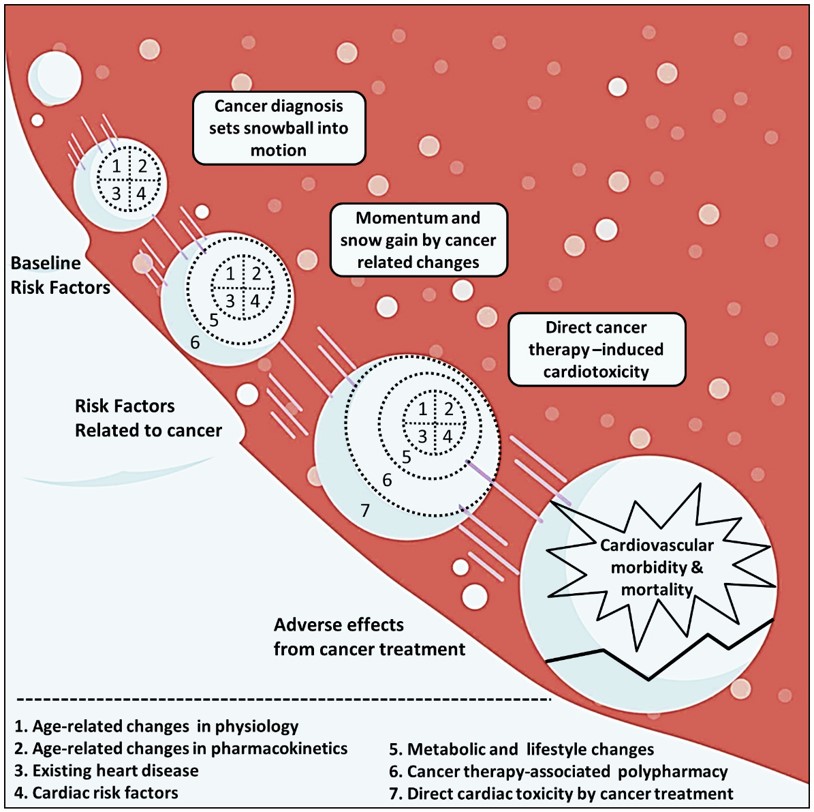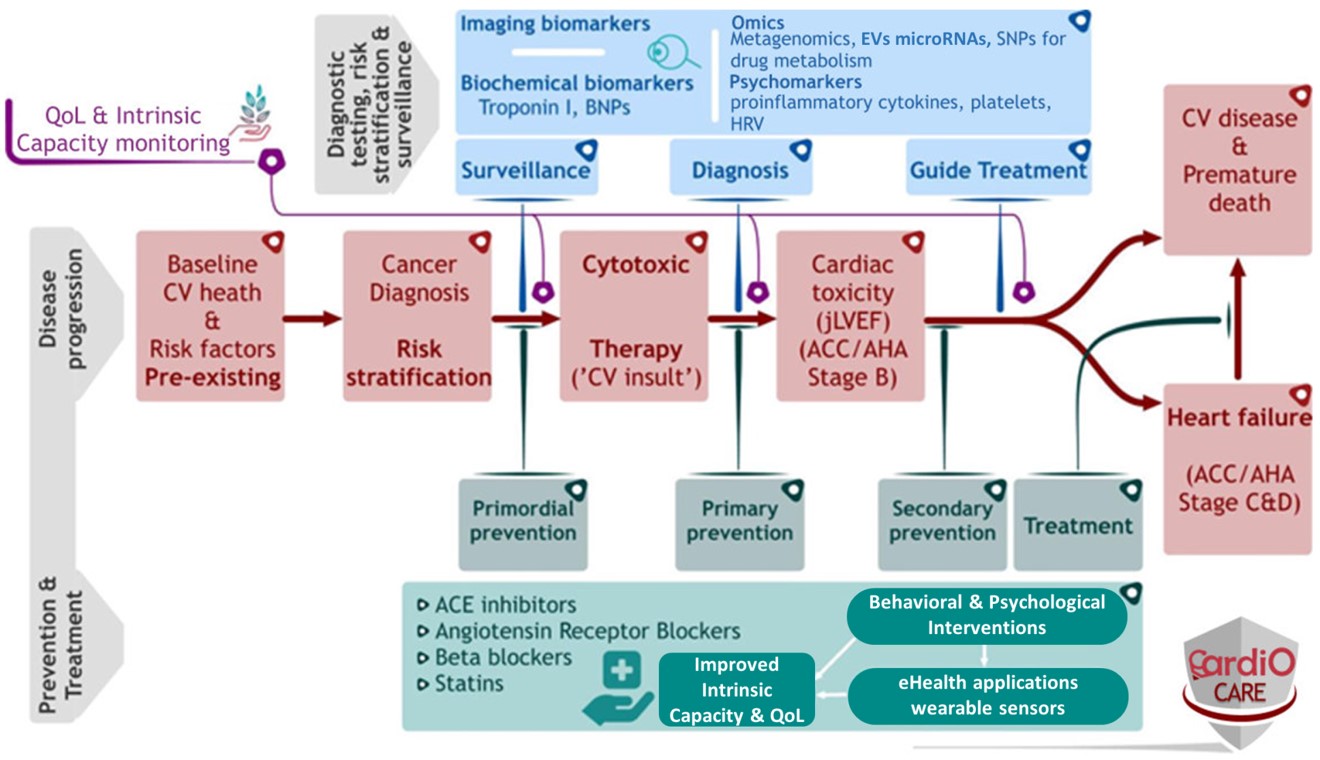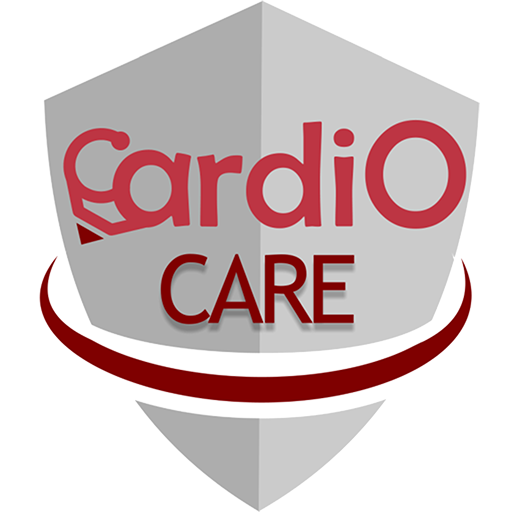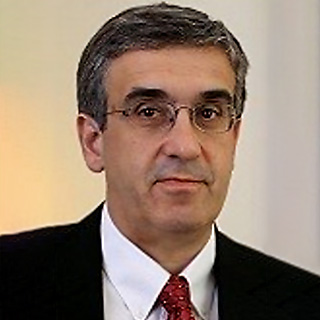Cardiotoxicity in elderly breast cancer patients
- 50%-60% of the newly diagnosed breast cancer patients are older than 65 years of age.
- This elderly group of patients is particularly susceptible to cardiotoxicity induced by cancer treatment, due to age-related risk factors, pre-existing heart disease and multiple co-morbidities.
- Multimorbidity can promote declines in intrinsic capacity (mental and physical health) and further exacerbate cardiac toxicity from cancer therapy in elderly breast cancer patients.
- Elderly cancer patients are systematically underrepresented in clinical trials and evidence-based best practices for the management of these patients, are lacking.
- Lack of best practices and frailty bias may lead to inappropriate interventions and undertreatment, resulting in poorer outcomes, deterioration of QoL and increased healthcare costs.

The “snowball effect” exacerbating cardiotoxicity in the elderly breast cancer patient (adapted by Oncologist. 2011;16(8):1138-43)
Cardiotoxicity disease continuum & Study concept

Project Vision
- Improve early detection and management of cardiotoxicity in the elderly breast cancer patient.
- Provide innovative patient-oriented tools and mHealth based supportive interventions to better monitor and improve intrinsic (mental and physical) capacity and QoL in these patients.
-
Provide effective risk stratification and best practices for cost-effective healthcare pathways based on Key Performance Indicators (KPIs).




